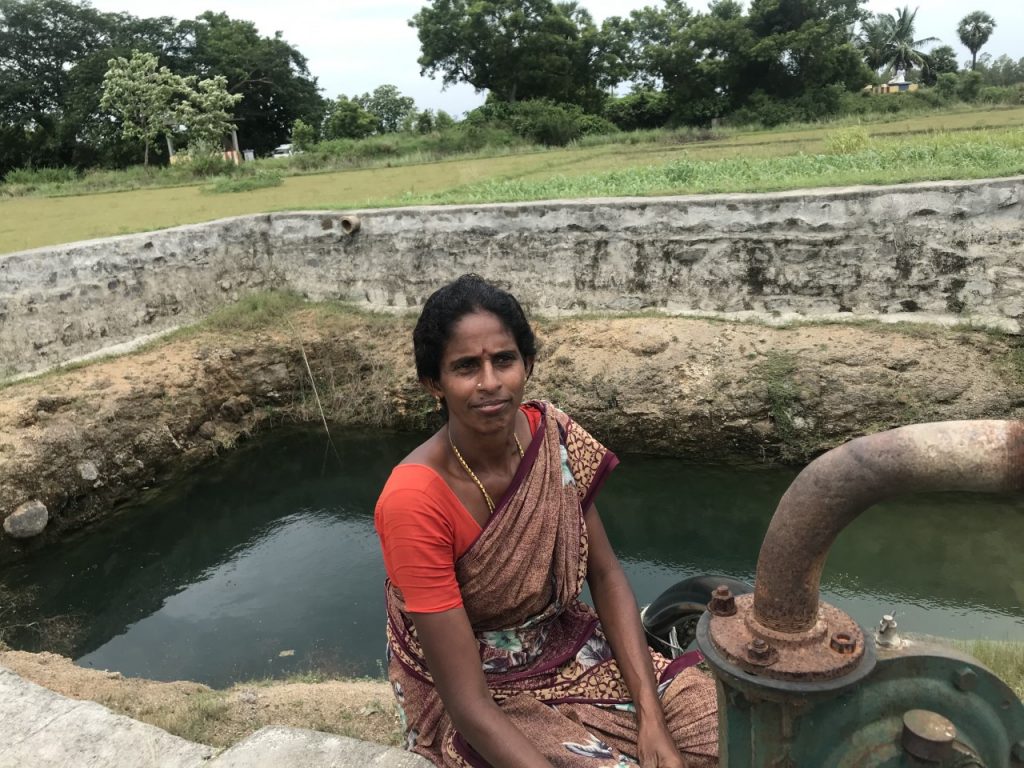“நீர்இன்று அமையாது உலகெனின்”(When water fails, functions of nature cease) – Thirukkural, classic Tamil language text.
As the couplet states, any production activity, especially agriculture, would cease to exist without water, as it is the basic necessity of life. Recent changes in agronomic practices and the escalating climate change crisis (extreme variability of rainfall, long dry seasons, and recurrent droughts, floods, and dry spells)[i] throw tremendous challenges for cultivating crops in rainfed regions. Small-scale access to irrigation becomes essential to enhance productivity in such cases.
The MOU was signed between MSSRF and VA Tech WABAG Ltd Chennai in 2015 to rejuvenate individual open wells in the rainfed Villupuram District and to strengthen small-scale water management for farming purposes. So far, 118 wells covering an area of 397 acres have been Repaired, Renovated and Restored (RRR)[ii] through the project. In addition to cleaning, desilting, and deepening the individual wells, a protective wall is constructed around the well, and finally, submersible motors are installed. The intervention was facilitated through the Nallavur Farmers Producer Company resulting in the development of the socio, economic and cultural environment of the men and women farmers.
During a recent field visit, we observed that the rejuvenated wells ensured water availability throughout the year, significantly contributing to agricultural operations. With the irrigated land utilized for the cultivation of paddy, black gram, groundnut and other horticultural crops (bhendi, brinjal, crossandra, jasmine, and marigold), agriculture is now more efficient and intensified than before. A variety of irrigation techniques are employed from the restored wells, including sprinklers, rain hoses, drips, and other micro-irrigation methods to increase water use efficiency.

To desilt a neglected well it would cost between Rs 20,000 and Rs 2,00,000 every year. However, a restored well would not require annual desilting, which helps to reduce the annual expenses meant for desilting the wells. Continuous water supply has allowed cultivation in all three seasons with high-yielding varieties, which have a reasonable market price and long durability. Water drainage into the well prevents flooding, and pipes are installed instead of open canals to reduce the loss of conveyance water. With the installation of submersible pumps, the number of motor thefts and motor damage incidents has reduced, also the amount of work involved with pumping. Therefore, women are no longer dependent on men to operate the pumps. The efficient motor system reduces energy consumption by which environmental sustainability is also achieved.
On the social and cultural aspects, this restoration has enabled women to be more involved in agricultural activities. With improving cropping patterns and intensification, a steady flow of income allowed women to gain access to credit since their repayment capability has increased. As they view the restored well as their greatest asset, native deities have found a place next to it. A woman farmer shared, “Our houses leak, but we would not let our wells collapse since they are essential for our food.” However, it was also noticed that despite being the main contributors, women do not have a significant role in decision-making processes.
Access to small-scale irrigation has enabled farmers to change their cropping patterns to optimise water-use efficiency. Using modern irrigation technologies has led to a reduction in water consumption, increasing their ability to farm in larger areas. This increases the farmers’ overall income, reduces risk exposure, and boosts morale to continue farming despite existing challenges.
[i] http://oar.icrisat.org/5755/1/Manging_water_315-352_2007.pdf
[ii] https://pmksy-mowr.nic.in/documents/RRR_PMKSY_Guidelines_2017.pdf
With inputs from Dr Ugalechumi, Dr R Gopinath, Dr Pratheepa and Dr R Rengalakshmi

